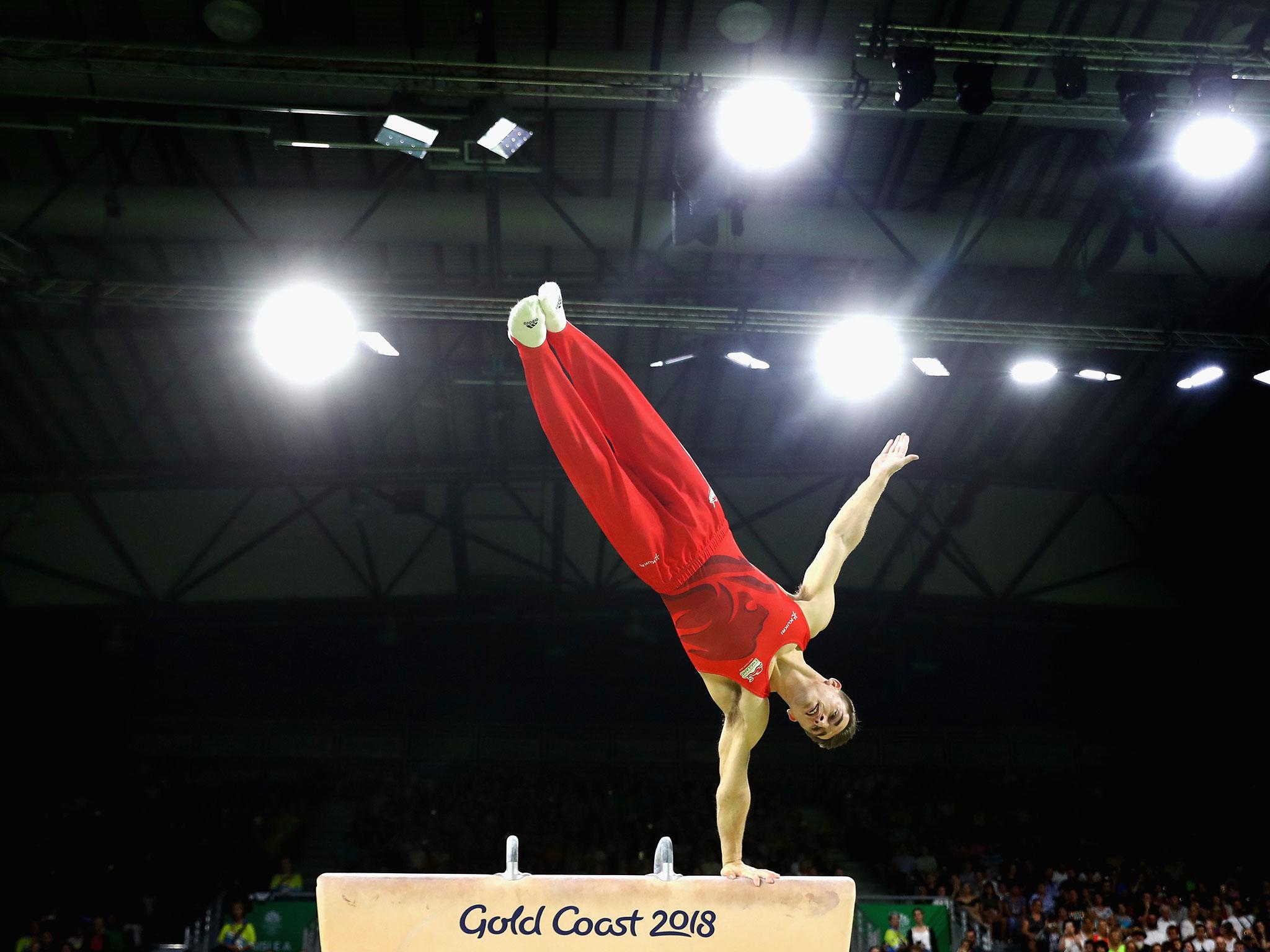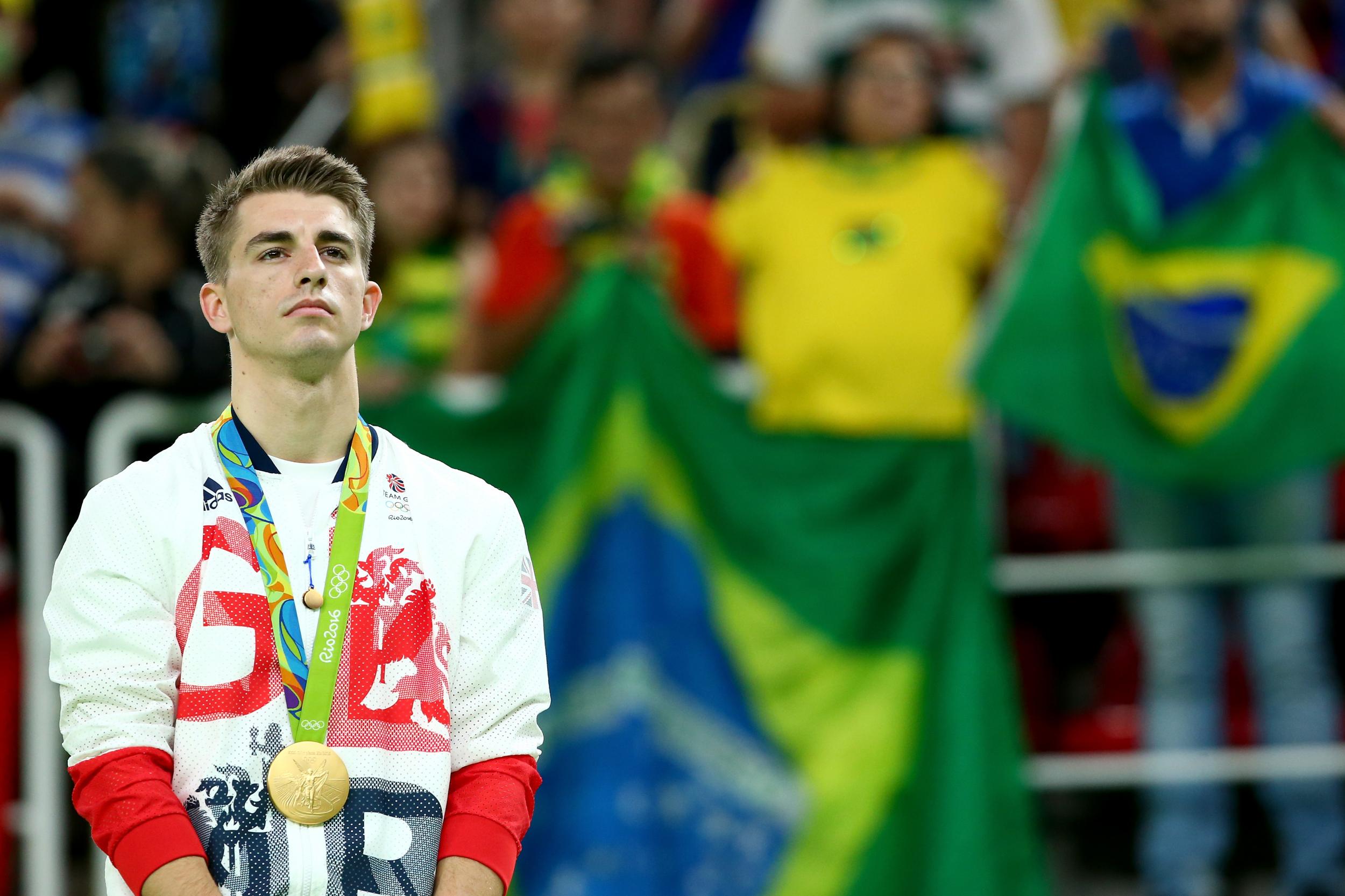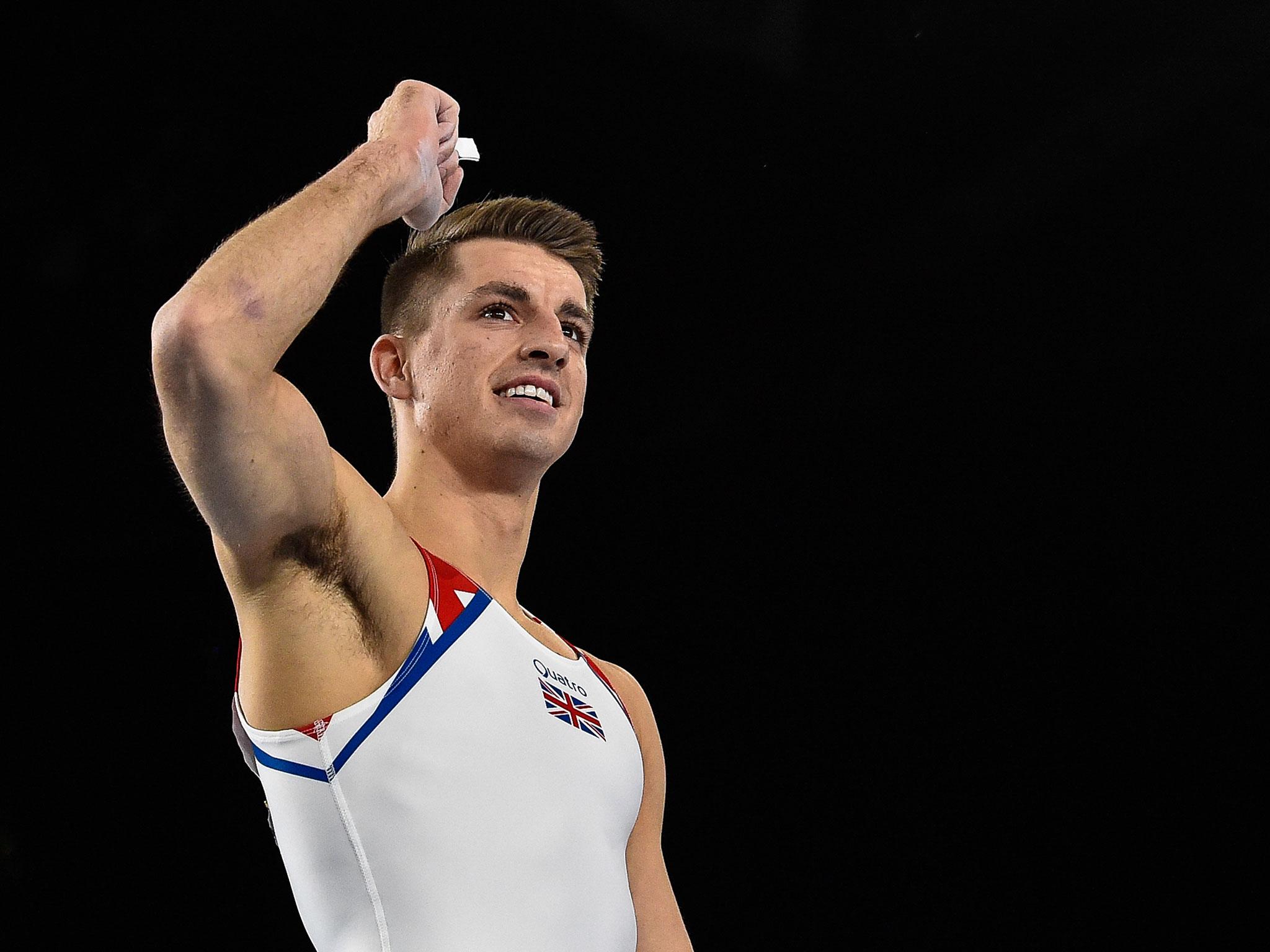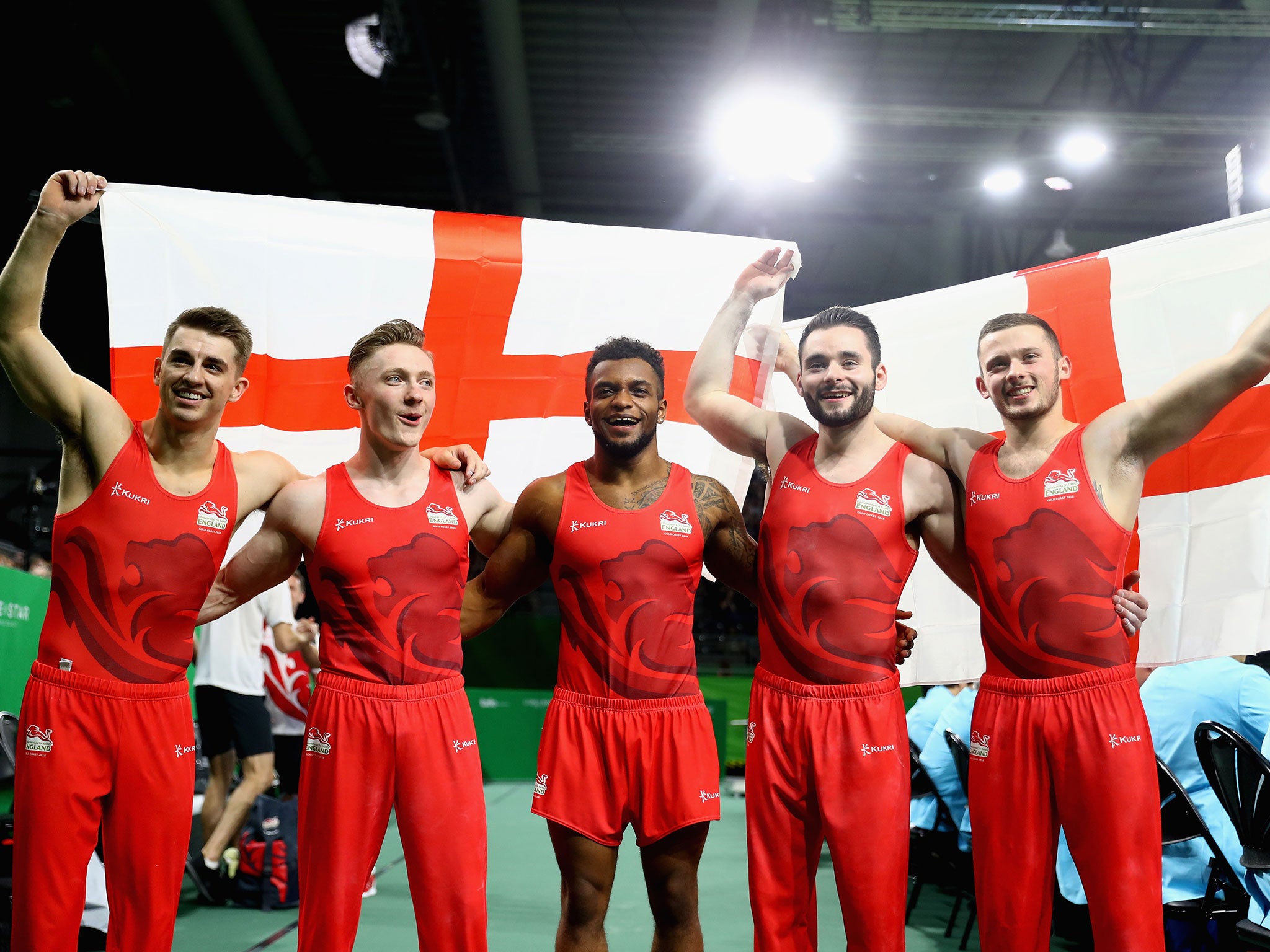Commonwealth Games 2018: Max Whitlock pushing himself to the edge as he reaches new historic heights
Interview: It’s on the pommel horse where Whitlock ultimately intends to take the biggest risk of his career, by performing an acrobatic manoeuvre previously never attempted within the sport

Your support helps us to tell the story
From reproductive rights to climate change to Big Tech, The Independent is on the ground when the story is developing. Whether it's investigating the financials of Elon Musk's pro-Trump PAC or producing our latest documentary, 'The A Word', which shines a light on the American women fighting for reproductive rights, we know how important it is to parse out the facts from the messaging.
At such a critical moment in US history, we need reporters on the ground. Your donation allows us to keep sending journalists to speak to both sides of the story.
The Independent is trusted by Americans across the entire political spectrum. And unlike many other quality news outlets, we choose not to lock Americans out of our reporting and analysis with paywalls. We believe quality journalism should be available to everyone, paid for by those who can afford it.
Your support makes all the difference.“The adrenaline and nerves that go through you when you’re trying a new skill is crazy,” Max Whitlock exclaims, suddenly sounding like one of the many eager juniors flooding through his new Southend gymnastics club, rather than a double Olympic champion who has won every possible gong his sport has to offer.
Whitlock stops, laughing at his own burst of enthusiasm. “The thing is, at this stage of my career you don’t get to experience that too often. Compared to when you’re younger, and you’re learning new skills all the time. It’s an amazing feeling.”
As the gymnastics programme gets underway on the Gold Coast over the next five days, Whitlock will showcase some new skills for the first time in major competition as he flies, tumbles, and twists through the air. Already, after just 24 hours of action Down Under, the Briton has claimed victory alongside his teammates in the Men’s Team Final, adding another gold to his current haul of eight Commonwealth Games medals.
Such success comes as little surprise. On paper, Whitlock is head and shoulders above the rest of the field, particularly in the pommel horse event, where he’s reigning Olympic and World champion, and in the floor competition where he also claimed gold in Rio.
Such is his dominance in the pommel event that Whitlock retained his world title in Montreal last October after less than two months preparation, having made the decision post-Rio to take a break from the treadmill of international competition.
“I only properly had a month and a half to prepare,” he tells The Independent ahead of the Commonwealth Games. “I’d just got married, we’d been on honeymoon, and then it was straight back, full throttle into the routines. It was really tight, but to still come out with gold gave me a lot of confidence that I can still perform the way I want to, if the build-up isn’t great.”
But while the medals in Australia might seem his for the taking, Whitlock is fully aware of the potential for things to go wrong, particularly in a sport where perfection, down to the minutiae of details, is everything. The first two years of a new Olympic cycle are always a time of upheaval in the gymnastics world, as the existing code of points – the criteria by which gymnasts are judged on – are ripped up and revised after every Olympic Games, forcing competitors to push for new skills, and upgrade existing ones.

This comes with its hazards, even for an Olympic champion, and while Whitlock’s routines will be impeccably honed come Tokyo 2020, for now they remain fraught with risk. This is particularly the case in the floor event where Whitlock has changed four of the five tumbles he performed at the Olympics, admitting that his new moves have seen him falling all over the place in training.
“It’s risky at this point but it’s an exciting challenge for me as the Commonwealths are an important stepping stone to master these skills, looking towards my long term target of Tokyo,” Whitlock says. “It’s about pushing yourself, but to the right limit so you can still do a good job in competition.”
Negating risk weighs so heavily in Whitlock’s mind that he even actively trains for when things go wrong, rehearsing his ability to adjust in a split second, should he put a hand or foot out of place during competition.
“Being able to think quickly and make those split decisions is so important in gymnastics, and that’s what makes certain gymnasts better competitors,” he says. “You’ve got to be able to compete under pressure, and perform when you need to. And you see a lot of talented gymnasts that are unbelievable in training but they can’t compete.

“It can be so easy for your shoulders to end up slightly off place, or your hand position on an apparatus, and you then need to adapt so quickly and know exactly where you are in the air, to make sure your body is in the right position coming out of that skill and you don’t fall. I do a lot of training under stressful conditions to rehearse that, sometimes deliberately doing the routine as scruffily as possible to make sure I can recover a situation as quickly as possible if I have to.”
It’s on the pommel horse where Whitlock ultimately intends to take the biggest risk of his career, by performing an acrobatic manoeuvre which is so completely new, it could see his name permanently etched into the annals of gymnastics history.
Whitlock is not yet ready to unveil his new move on the Gold Coast – although his pommel routine is still expected to be the hardest ever attempted in the history of the sport – but it remains one of his biggest goals in the sport.
“It’s an airflare, which is a skill I already do on the floor, but my dream is to get it on the pommel horse because that’s something no one has ever done before,” he says. “But it’s a long work in progress because it’s really dangerous. It involves flipping in mid air, and releasing both hands at the same time from the pommel, which no one does right now. And that’s difficult because the pommel’s not the biggest of surfaces, it’s got handles, and there’s a bit of a drop to the ground. So if you spin in the air, then mess up the landing, you could easily hit your face on the pommel.”
For the skill to be known for evermore as ‘The Whitlock’, it would have to be performed in a major competition. But that comes with a certain dilemma.
“It’s my dream and mission, and I’m very determined to get it before I retire from gym but my motivation at the moment is also to try and retain titles, and I don’t want to take the huge risk of going for it in a major event, unless it’s absolutely solid and perfect in training,” Whitlock says. “That takes time, and everything’s about building towards Tokyo right now, so it may be that I attempt it sometime after the next Olympics. But hopefully in the future, I’ll see people doing ‘The Whitlock’ in competitions. That would be an amazing feeling.”
Whitlock’s other major goal is to win a global all-round title, emulating his idol in the sport, the great Kohei Uchimura, regarded by many to be the greatest gymnast of all-time with three Olympic and six world titles. But while Whitlock won the all-round title at the Glasgow Commonwealth Games, and took bronze in Rio, he’s taking a break from the event, mindful of the need to avoid burn-out after a scare with glandular fever in 2015.
“As you get older, it’s more about being the cleverest worker in training, than the hardest worker,” he says. “It starts to become 50 per cent training, 50 per cent recovery. I’ve seen a lot of seniors still training like they’re juniors which makes them burn out.”
Whitlock is also mindful of the need to stay ahead of rising crop of young British competition in the pommel and floor events, inspired by the growing flood of gymnastics medals at recent Olympics, led by Whitlock and Louis Smith.

“The young gymnasts in this country are progressing faster and faster, because if I’m doing a skill in training and there’s young kids watching, they will want to try that skill, and they’re potentially six or seven years younger than me,” he says. “Whereas, when I was that age I didn’t really see many people doing those skills. There weren’t many people to look up to at that time. But now the youngsters are seeing what’s possible, and then they’re motivated to go and train harder. It’s a snowball effect really.”
Whitlock has been keen to capitalise on his success and the growing popularity of gymnastics in the UK, by encouraging more boys to give it a try, launching his own club last year. And while the sport has traditionally been favoured mainly by girls, he believes that’s starting to change.
“It’s increasing massive with boys,” he enthuses. “I think that’s due to what our men’s team have been doing. We’re trying to make the sport a bit more cool. It’s cool to be able to do gymnastics, it’s cool to be able to do the skills that you can do, because not everyone can do what a gymnast can do.”
In the meantime, another succession of English golds on the Gold Coast would do gymnastics’ profile no harm at all. Post-Rio, Whitlock admitted that one of his biggest obstacles at the Games had been dealing with a bout of home-sickness, and provided he avoids falling, that may well be his toughest challenge in Australia.
“I’m someone that just loves being at home,” he laughs. “I enjoy going away, having these amazing experiences competing all over the world, but I like to be in and out. Go there, have a brilliant competition, and then come home again to catch up with my family is perfect for me. I think just the comfort of home is where I like to be.”
Join our commenting forum
Join thought-provoking conversations, follow other Independent readers and see their replies
Comments